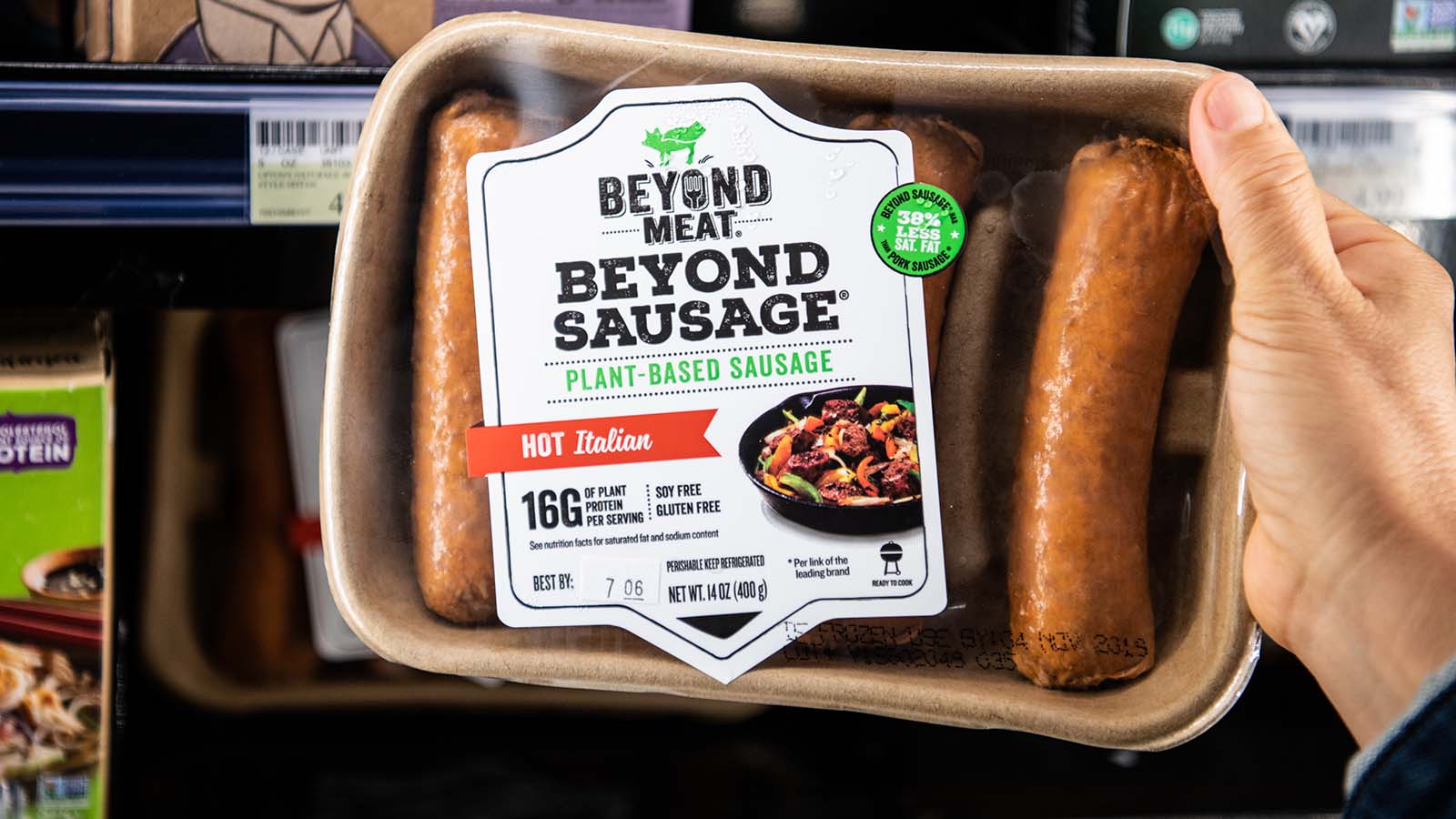Since late January, Beyond Meat (NASDAQ:BYND) has been under some selling pressure. Keep in mind that the shares have gone from $120 to $99.

But of course, since the company went public in May 2019, this kind of volatility has been the norm. To get a sense of things, the initial offering price was $25 and the high was $239 on Beyond Meat stock, less than a year into trading.
Yes it’s typical to see wide swings with a hyper-growth IPO. And yet, Beyond Meat has been able to maintain its staggering ramp. During the latest quarter, the company reported revenues of $298 million, up 239% on a year-over-year basis. The company’s plant-based meat offerings are available in more than 77,000 retail restaurants and foodservice outlets in over 65 countries. Just some of their marquee customers include Starbucks (NASDAQ:SBUX), Mcdonald’s (NYSE:MCD) and Dunkin Brands Group (NASDAQ:DNKN).
But despite all this, I actually think there are some things that investors need to be worried about. Why so? Well, let’s take a look at three bearish factors for Beyond Meat stock:
How Big Is The Opportunity…Really?
According to research from UBS, the market for plant-based meat alternatives is forecasted to go from $4.6 billion in 2018 to a staggering $85 billion by 2030. And this estimate is not an outlier. Various other reports show strong growth.
But investors should still take this with a grain of salt. After all, these forecasts are generally for the next five to ten years. So yes, that much can happen during such a short period of time.
There are also some signs that adoption may not be as widespread. For example, a survey from Piper Sandler of 3,500 adults showed that 62% were not interested in plant-based meats.
Something else: The health benefits may not be as strong as believed. Note that Beyond Meat is a processed food, with high levels of sodium and saturated fats.
True, there are other reasons people eat plant-based meats, such as for animal welfare and even helping deal with climate change. But if the health benefits are not as great, then this could certainly mute some of the demand.
Competition
While Beyond Meat is the pioneer in its category and has developed its own intellectual property, these advantages may represent a weak moat. The fact is that there are numerous other companies also focused on the opportunity.
For example, there are startup operations like Impossible Foods Inc. that have raised substantial amounts of venture capital. Traditional food companies are also developing their own alternatives, such as Nestle (OTCMKTS:NSRGY), Cargill and Tyson Foods (NYSE:TSN). Such companies have strong distribution footprints and savvy marketing capabilities.
In fact, there are already signs of pricing pressures, which could weigh on margins for Beyond Meat. To this end, Impossible Foods recently discounted its wholesale products by 15%.
Valuation On Beyond Meat Stock
The valuation on Beyond Meat stock is certainly far from cheap. Note that the shares currently trade at about 13.5 times sales. This is something you typically see with a red-hot software startup, not a food manufacturer.
Wall Street analysts are also skeptical. The average price target is $103, which assumes only about 4% upside from current levels.
Now it’s true that there should be a premium on Beyond Meat stock. But still, it does seem like much of the good news is already baked in. So even a slight deceleration in growth — which seems reasonable because of the competition and pressure on margins — makes the shares vulnerable.
Tom Taulli (@ttaulli) is the author of various books on investing and technology, including Artificial Intelligence Basics, High-Profit IPO Strategies and All About Short Selling. He is also the founder of WebIPO, which was one of the first platforms for public offerings during the 1990s. As of this writing, he did not hold a position in any of the aforementioned securities.
